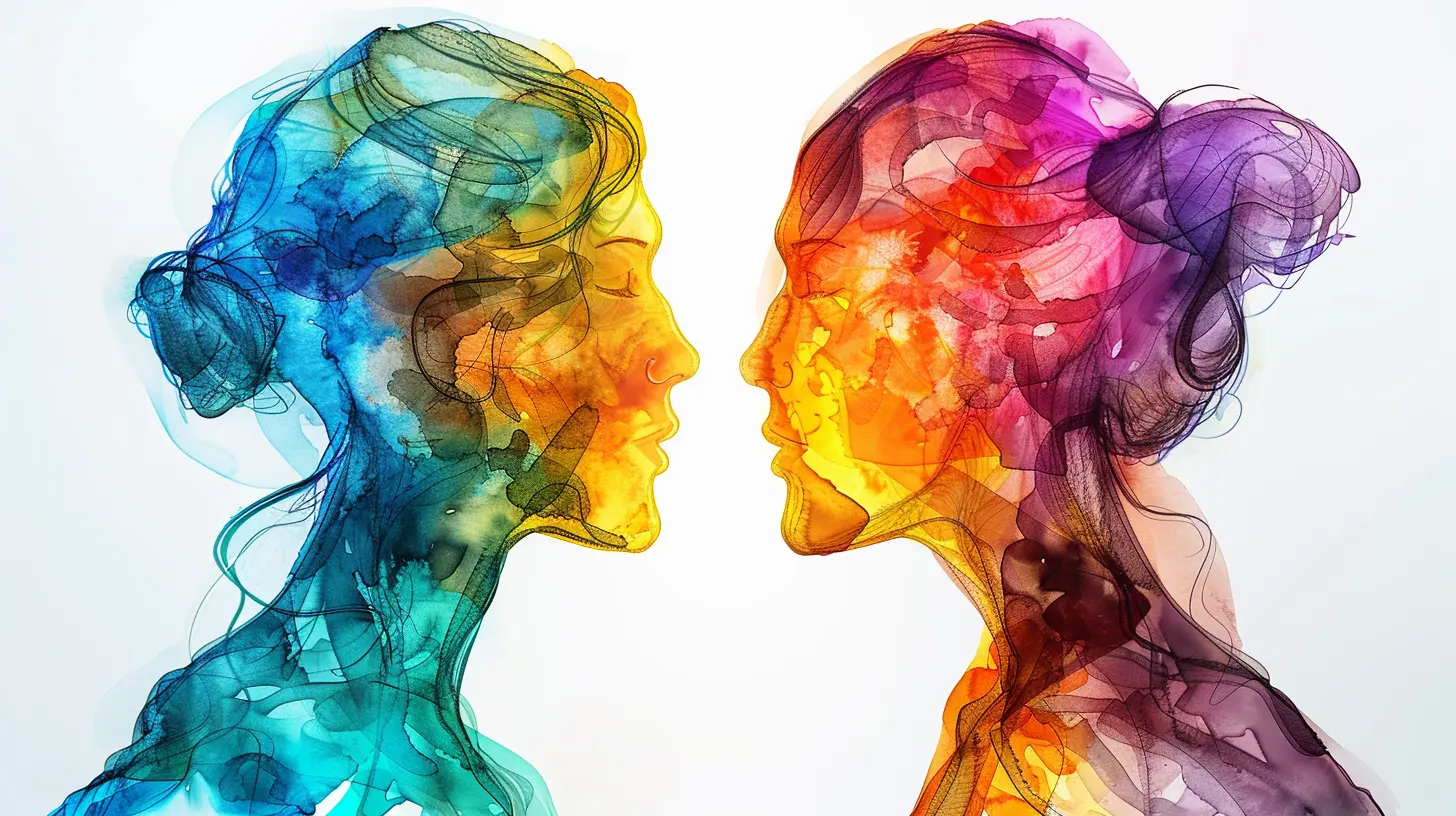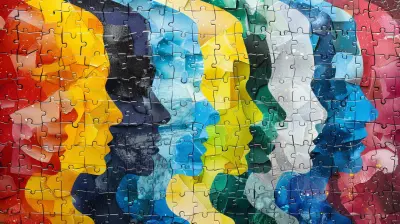The Impact of Personality Traits on Relationship Dynamics
30 May 2025
Ever wondered why some relationships seem to flow smoothly while others are full of friction? Well, personalities play a huge role in how we connect with others. Essentially, our personality traits shape how we communicate, interpret behavior, and react to various situations. Because relationships are a delicate dance between two individuals, our unique quirks and characteristics can either make or break the dynamic.
In this article, we’re going to dive deep into how personality traits affect relationships. Think of it like exploring the secret ingredients to successful partnerships—because understanding personalities can be the key to creating deeper, lasting bonds. Let’s get into it!

What Are Personality Traits?
Before we can fully understand how personality influences relationship dynamics, we need to define personality traits. These are the habitual patterns of thoughts, emotions, and behaviors that each of us consistently display over time. They form the building blocks of who we are, helping to shape our interactions, preferences, and responses to the world around us.The most common framework for understanding personality traits is the Big Five Personality Traits model. If you haven't heard of this before, here it is in a nutshell:
1. Openness to Experience – How open-minded, creative, or curious someone is.
2. Conscientiousness – The degree to which someone is organized, responsible, and reliable.
3. Extraversion – How outgoing, talkative, and energetic someone is.
4. Agreeableness – How cooperative, kind, or empathetic someone is.
5. Neuroticism – How prone someone is to experiencing negative emotions like anxiety or mood swings.
Now, picture your personality as a recipe. Some people might have more ingredients of extraversion and agreeableness, while others have a dash of conscientiousness mixed with a sprinkle of neuroticism. These individual "recipes" are directly linked to how we approach and maintain relationships. Let's break down how some of these traits influence the dynamics between partners.

The Role of Openness in Relationships
High Openness: Adventure and Curiosity
If you’re someone who scores high in Openness to Experience, you likely crave novelty and intellectual stimulation in your relationships. You’re the kind of person who loves trying new activities, traveling with your partner, or having in-depth, mind-bending conversations.In relationships, this trait can be a double-edged sword. On the one hand, your curiosity and willingness to explore create an exciting dynamic. You’re probably flexible, adaptable, and open to compromise, which is essential for navigating the twists and turns of a partnership.
However, the downside? A strong desire for something "new" may lead to restlessness or dissatisfaction if the relationship falls into too much routine. You may struggle with long-term commitment if things start to feel stagnant. It’s crucial in this case to actively communicate with your partner and keep the relationship fresh.
Low Openness: Stability and Tradition
On the flip side, if you’re low on openness, you’re generally more comfortable with routine and tradition. You probably shy away from surprises or impulsive decisions. In relationships, this can bring a sense of stability and predictability, which is comforting for many couples. You value consistency and may be more focused on long-term goals.But here's the catch: low openness can sometimes create friction when paired with a more adventurous or spontaneous partner. It may come across as inflexibility or stubbornness. In such scenarios, it’s essential to strike a balance between embracing the familiar and venturing out when necessary.

Conscientiousness and Relationship Goals
High Conscientiousness: The Planner
People who score high in Conscientiousness are known for their impeccable organization, reliability, and strong sense of duty. If this sounds like you, you’re the planner in the relationship—the one who ensures that bills are paid on time, the house is clean, and future goals are in check.In relationships, this trait is often welcomed with open arms because it provides a foundation of trust and dependability. You’re likely great at setting boundaries, sticking to your word, and fostering a structured, harmonious life.
However, the same conscientiousness can sometimes border on perfectionism. You may find yourself sweating the small stuff or projecting unrealistic expectations onto your partner. If your significant other is more laid-back, this can create tension. The key is learning to let go of control and embrace spontaneity without feeling like the world is going to collapse.
Low Conscientiousness: The Dreamer
On the other hand, if you tend to score low in conscientiousness, you may be more easygoing, spontaneous, and less concerned with structure. While this can create a fun and free atmosphere in a relationship, it may also come across as irresponsibility. If left unchecked, this can lead to conflicts over unmet obligations or broken promises.For low-conscientious couples, it's essential to establish systems of mutual respect and accountability. Don't get me wrong—no one needs to be a taskmaster. But having a framework for responsibilities can help avoid misunderstandings where one partner feels they’re "carrying the load."

Extraversion vs. Introversion: Social Butterflies and Quiet Nooks
Extraverts: The Energizers
If you’re high in Extraversion, you thrive on social interactions. You probably love meeting new people, hosting parties, or simply getting out of the house. In relationships, you're likely the one bringing energy and excitement, initiating plans, and keeping things lively.However, extraverts may struggle when paired with introverts who need more quiet time to recharge. This mismatch can lead to misunderstandings. While you may feel under-stimulated when your introverted partner wants a quiet weekend at home, your partner may feel drained after too many social activities.
The solution? Balance. Recognize that everyone has different social needs, and figure out how to meet somewhere in the middle. Extraverts may need to learn that not every moment needs to be filled with activity, while introverts may need to stretch their comfort zones.
Introverts: The Reflective Souls
Meanwhile, if you're lower in extraversion (i.e., you’re an Introvert), you’re someone who finds energy in solitude or small, meaningful group settings. You prefer quieter, more intimate exchanges over big social events.In relationships, this trait can bring depth and introspection, and you likely value quality time spent together in peaceful environments. Conflict may arise, though, if your partner is more of a social butterfly. They might interpret your need for alone time as rejection or disinterest.
Again, balance is key. Communicate with your partner about your needs and be willing to compromise. Just because you're introverted doesn't mean you can't enjoy the occasional night out, and just because your partner is extraverted doesn’t mean they can’t enjoy a cozy night in.
Agreeableness: The Glue of Harmonious Relationships
High Agreeableness: The Peacemakers
People high in Agreeableness are empathetic, cooperative, and often referred to as the "heart" of relationships. If you find yourself constantly seeking to smooth over conflicts or are always thinking of your partner’s feelings, this might be you.In relationships, agreeableness can be a superpower. Your ability to resolve disagreements calmly and kindly makes it easier to maintain harmony. However, there’s a risk of becoming a people-pleaser, constantly sacrificing your own needs to maintain peace, which can lead to resentment over time.
Make sure to set boundaries and focus on honest communication. You don’t always have to be the "fixer." It’s okay to assert yourself when necessary and let your partner know how you’re feeling.
Low Agreeableness: The Challengers
If you score low on agreeableness, you're likely more competitive and less concerned with the feelings of others (at least, relative to high-agreeableness individuals). This can lead to passionate, fiery relationships full of debate and banter.While some couples find this dynamic exciting, constant conflict or criticism can be emotionally draining. If you tend to argue often or push back on your partner’s suggestions, it’s important to recognize when to compromise. Relationships aren’t a competition, after all. Listening and empathy can go a long way in creating understanding.
The Influence of Neuroticism on Emotional Stability
High Neuroticism: The Emotional Rollercoaster
People with high levels of Neuroticism tend to experience frequent mood swings, anxiety, and emotional instability. If this sounds like you, you might find yourself easily overwhelmed by stress or prone to overthinking during arguments.In relationships, high neuroticism can create a dynamic of emotional unpredictability. Your partner might feel like they're constantly walking on eggshells, not knowing what might trigger an emotional response. This can be taxing over time, leading to frustration for both sides.
The important takeaway for high-neurotic individuals is to engage in self-awareness and emotional regulation. Learn to recognize when you're feeling particularly anxious or overwhelmed and communicate that to your partner. Therapy or mindfulness practices can also be beneficial tools.
Low Neuroticism: The Calm Pill
On the other hand, if you’re low in neuroticism, you're likely calm, level-headed, and less prone to stress. In relationships, this can be a stabilizing force, as you’re less likely to get caught up in emotional turbulence.However, low neuroticism can sometimes be misinterpreted as a lack of empathy or indifference, especially if your partner is more emotionally expressive. Make sure to actively engage with your partner’s emotions and show understanding, even if you don't personally experience the same intensity.
Conclusion: Personality Traits as Relationship Navigators
Understanding how your personality traits influence your relationships can be a game-changer. Whether you're a social butterfly extravert or a conscientious planner, these traits shape how you interact with your partner. The key takeaway? Balance. No two people are alike, and that’s what makes relationships beautiful—but also complicated.By recognizing and embracing your differences, you can improve communication, foster empathy, and build stronger, more resilient relationships. The road to relationship success lies in understanding yourself and your partner—because when you know the drivers of your personality, you can steer your relationship in the right direction.
all images in this post were generated using AI tools
Category:
Human BehaviorAuthor:

Jenna Richardson
Discussion
rate this article
3 comments
Seth McCracken
In the dance of hearts, personality wields its force, Crafting bonds with whispers, shaping love's course. From introverted stillness to extroverted glow, Each trait weaves a tapestry, rich and aglow. Understanding these threads can mend or align, Transforming connections into a tapestry divine.
June 18, 2025 at 3:25 PM

Jenna Richardson
Thank you for your poetic reflection! It beautifully captures how personality traits intricately shape our relationships and deepen our connections.
Aris Mendoza
Understanding personality traits is crucial for nurturing healthy relationships. By recognizing and appreciating our differences, we can foster empathy and communication. This awareness not only enhances connection but also helps us navigate challenges, ultimately leading to deeper, more fulfilling interactions with others.
June 1, 2025 at 3:09 AM

Jenna Richardson
Thank you for your insightful comment! I completely agree—understanding personality traits is key to building empathy and improving communication in relationships.
Daniella McIntosh
Great insights! It’s fascinating how our personality traits shape relationships. Understanding this can truly enhance our connections with others!
May 30, 2025 at 2:56 PM

Jenna Richardson
Thank you! I'm glad you found the insights valuable—understanding personality traits really can transform our relationships!



